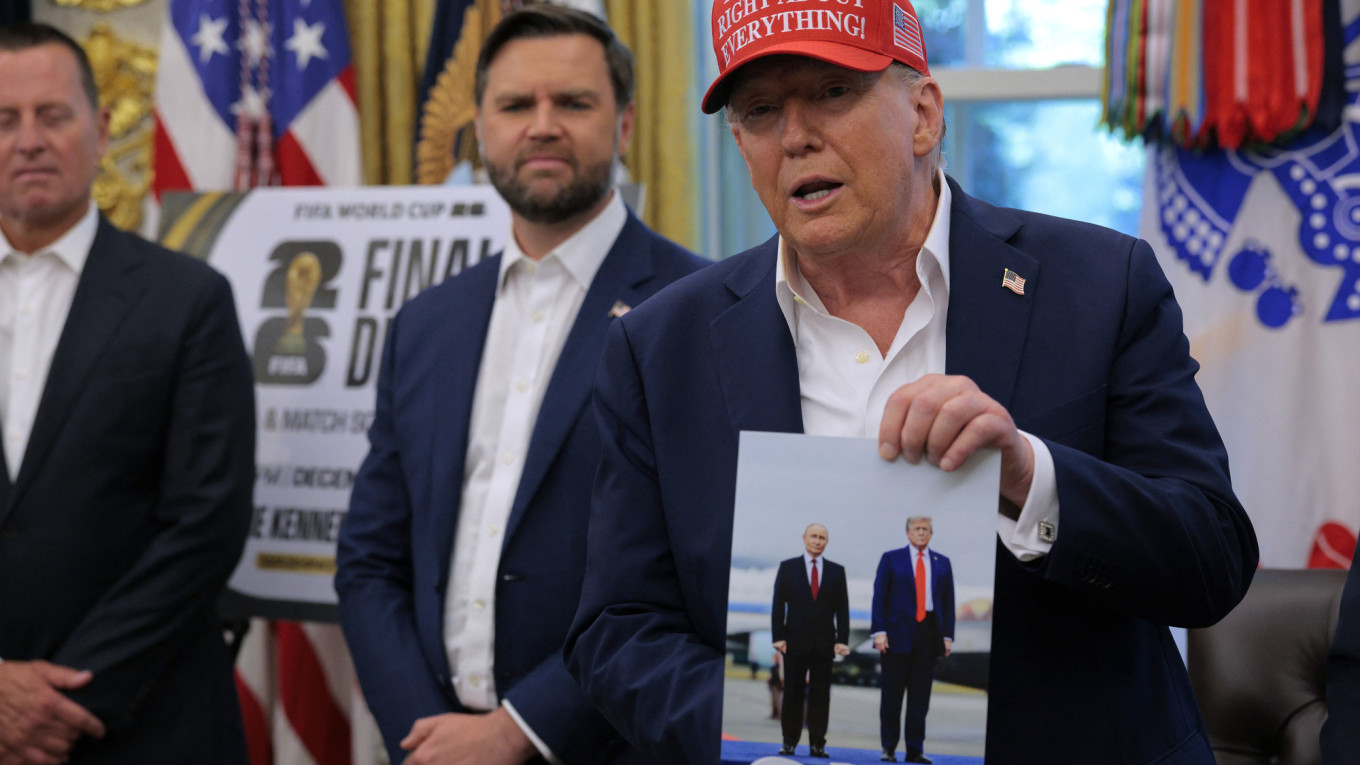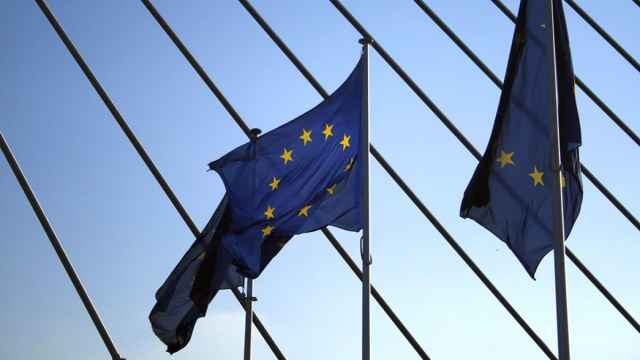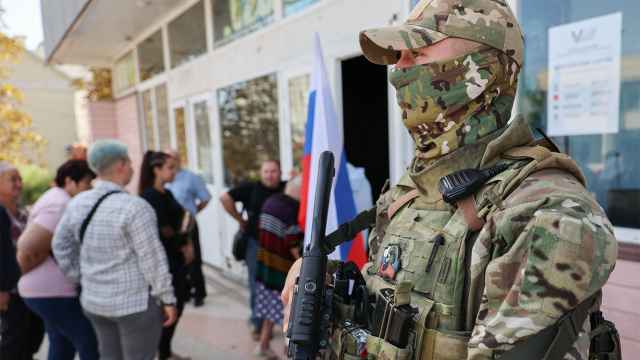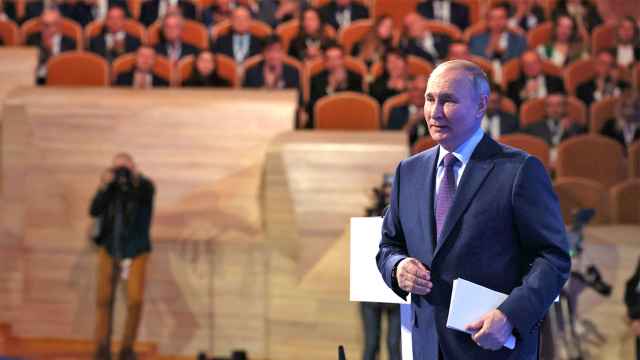United States President Donald Trump’s latest wheeze for imposing further sanctions on Russia comes with a jaw-dropping catch: NATO must first impose tariffs of 50% to 100% on China.
On the surface, it sounds like a bold move that takes on two adversaries in one stroke. But scratch it, and what you find is less Winston Churchill and more Baldrick from the farcical BBC sitcom Blackadder — a “cunning plan” so hopelessly self-defeating that only its author could think it brilliant.
As Trump boomed on Truth Social: “NATO must hit China with tariffs of at least 50%, or we won’t sanction Russia any further. This is how you win — big and fast.”
Like Baldrick’s schemes, it collapses under the weight of its own ridiculousness the moment you apply logic. It is the political equivalent of strapping a turnip to your head and marching into war: absurdly comic, strategically ruinous and useful only to the enemy.
Beneath the theatrics, it is really just a cynical stalling tactic — one that risks fracturing an already fragile Western alliance. By raising the bar this high, Trump effectively lets Moscow off the hook, granting Putin much-needed breathing room as the war rages on.
The tariff demand on China is not just reckless — it is economically suicidal. European NATO members rely heavily on trade with China, worth over a trillion euros annually.
Punitive tariffs of this scale would spark devastating supply chain chaos, trigger retaliatory tariffs, and slam industries and consumers alike.
It would also undermine delicate EU efforts to manage its relationship with China: Brussels is wary of escalating tensions with Beijing, not least because the bloc is still seeking to clinch a trade deal with India and safeguard its own markets after U.S. tariffs.
At the same time, Europe has been making painful progress in reducing its dependence on Russian energy. Once the EU’s largest supplier, Moscow’s share of oil imports plummeted from 27% before the war to just about 3% last year, after sanctions were imposed in 2022.
A similar story is unfolding in natural gas: Russia provided roughly 45% of the EU’s supply in 2022, but that share is projected to fall to about 13% this year.
Earlier this year, the EU went further, banning the import of petroleum products refined from Russian oil — a move that hits companies in India and Turkey that had been profiting by reselling Russian crude as diesel and other fuels.
Yet the transition has not been seamless. Hungary and Slovakia continue to resist, citing the costs of switching to alternative oil supplies.
Hungarian Prime Minister Viktor Orbán, a close ally of Putin and Trump, has doubled down on Russian imports and secured temporary exemptions on oil.
Slovakia’s Robert Fico has called the EU’s push to quit Russian gas “absolutely unacceptable,” warning it would crush his country with higher costs.
Orban has also courted Chinese investments in cars and batteries, which makes his support for EU tariffs on Beijing politically and economically untenable. These carve-outs and contradictions expose the uneven burden within Europe, weakening the collective front against Moscow.
Trump’s demand suggests he considers even this significant reduction insufficient, ignoring the progress made and the real challenges Europe faces in replacing Russian energy
Ukrainian President Volodymyr Zelensky has urged Europe to accelerate the phase-out, pointing to the roughly 210 billion euros ($247.8 billion) the EU has spent on Russian energy since 2022 — money that fuels the Kremlin’s war machine.
The EU aims to end all purchases by 2028, while Washington presses for a faster timeline, conveniently positioning American oil and gas as the alternative. As the world’s largest oil producer, the U.S. is looking to profit off this conflict, pressing allies to buy its oil under the guise of solidarity.
This comes as Europe’s economy teeters under the weight of soaring debt costs. German 10-year bond yields have shot up from negative territory to around 2.5%.
Italy and Spain face even higher borrowing costs, fueling fears of economic instability. Throwing in steep tariffs on China could push Europe closer to recession and social unrest.
More critically, aggressive sanctions on Russia, particularly targeting its oil and gas exports, risk destabilizing the global energy market.
Russia supplies roughly 10% of the world’s oil and 17% of natural gas — key lifelines for many economies, especially in Europe. Sanctions that disrupt these flows could trigger sharp spikes in energy prices, driving inflation higher and straining households and industries already battered by rising costs.
Europe’s alternatives, like liquefied natural gas, are expensive and bottlenecked by a lack of infrastructure.
Retaliation from Russia or China, such as restricting energy exports or cementing their own trade alliances, could fracture global markets and deepen uncertainty.
Key NATO players like Germany, France, and Italy understand this reality. They know decoupling from China overnight is madness.
Slapping on 50 to 100% tariffs would cripple their economies and ironically push China further into Russia’s arms, destroying what little leverage the West still has.
Then there is Turkey, a NATO member that refuses to sanction Russia at all. Ankara’s stance exposes deep divisions and weakens the collective Western response to Russian aggression.
Trump’s sanctions gambit is simple: divide the alliance, delay decisive action and sow confusion. Behind his bombastic threats lies a deliberate effort to weaken NATO by driving wedges between member states.
He has even gone so far as to suggest that Russia’s drone strike on Poland may have been a mistake, downplaying Moscow’s blatant aggression.
Time and again, Trump refuses to punish Putin or Russia meaningfully, raising serious questions about whether he is acting as an unwitting or willing asset for Moscow.
Trump’s tariff ultimatum is less a strategic plan and more a political smokescreen — raising the bar so high that meaningful action stalls.
Even if Western countries bend to his will, history tells us Trump would find an excuse not to follow through — just like with the “TACO tariffs” he promised on China (tariffs on certain goods that were loudly announced but never fully implemented).
If the West truly wants to hold Russia accountable, it must reject impossible ultimatums and instead rally around pragmatic, targeted sanctions. Only through unity and realistic policies can NATO preserve its strength, support global stability, and effectively pressure Russia to end its aggression.
Otherwise, we risk marching into history with Trump’s Baldrick-level cunning plan — the sort of strategy that involves perching a turnip on your head and hoping the enemy does not notice.
A Message from The Moscow Times:
Dear readers,
We are facing unprecedented challenges. Russia's Prosecutor General's Office has designated The Moscow Times as an "undesirable" organization, criminalizing our work and putting our staff at risk of prosecution. This follows our earlier unjust labeling as a "foreign agent."
These actions are direct attempts to silence independent journalism in Russia. The authorities claim our work "discredits the decisions of the Russian leadership." We see things differently: we strive to provide accurate, unbiased reporting on Russia.
We, the journalists of The Moscow Times, refuse to be silenced. But to continue our work, we need your help.
Your support, no matter how small, makes a world of difference. If you can, please support us monthly starting from just $2. It's quick to set up, and every contribution makes a significant impact.
By supporting The Moscow Times, you're defending open, independent journalism in the face of repression. Thank you for standing with us.
Remind me later.








